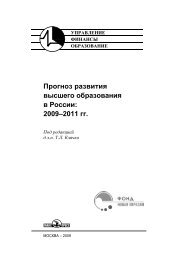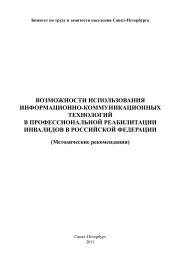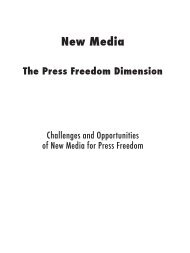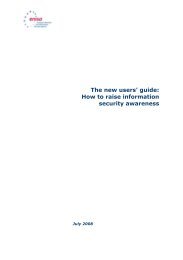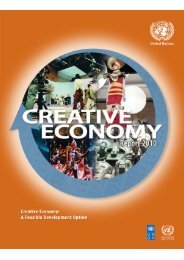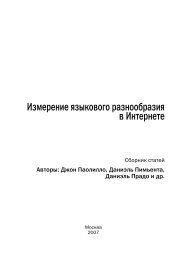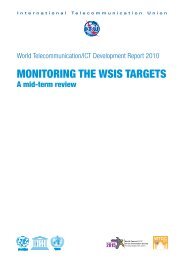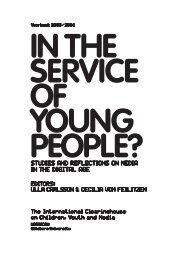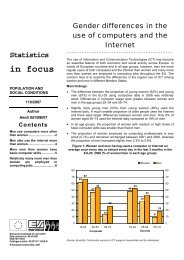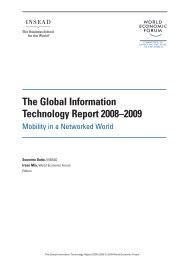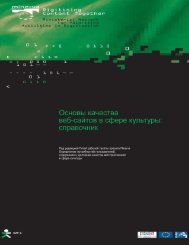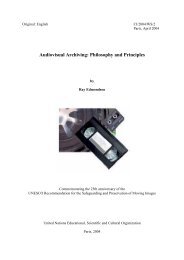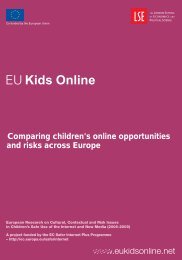Model curricula for journalism education for developing countries ...
Model curricula for journalism education for developing countries ...
Model curricula for journalism education for developing countries ...
Create successful ePaper yourself
Turn your PDF publications into a flip-book with our unique Google optimized e-Paper software.
15<br />
Broadcast workshop: radio or TV editing, production, and<br />
per<strong>for</strong>mance<br />
Schools that wish to require students to take both newspaper and<br />
broadcast workshops could offer these workshops as shorter units<br />
or offer the newspaper workshop in the first term in place of an<br />
elective course.<br />
• Bachelor’s project<br />
• Journalism electives<br />
• Arts/science courses<br />
Note: A fourth tier of reporting and writing could be offered as a fourth-year course,<br />
concentrating on — and distinguishing between — analytical writing and opinion<br />
writing (see course description below <strong>for</strong> Analytical and Opinion Writing). Some<br />
re-ordering of courses would be necessary to accommodate this as a required<br />
course. Tier 1 would have to be taken in the first year, as a half credit, following the<br />
Foundations course taught as a half credit, so that Tier 2 could be offered in the<br />
second year and Tier 3 in the third. Tier 4 could then be offered in the fourth year as a<br />
one-semester or two-semester required course. Alternatively, it could be offered (as<br />
it is in this curriculum) as an elective.<br />
MASTER’S DEGREE<br />
In this document we offer two master’s <strong>curricula</strong>, one <strong>for</strong> students with little or no<br />
<strong>journalism</strong> background and one <strong>for</strong> students with a <strong>journalism</strong> bachelor’s degree or<br />
at least five years <strong>journalism</strong> experience. Both master’s programs in these <strong>curricula</strong><br />
combine study in <strong>journalism</strong> with study in a second subject. We understand that<br />
some universities may not be able to offer both programs. If they choose to offer<br />
only the program designed <strong>for</strong> students with a <strong>journalism</strong> background they could<br />
require other students to take make-up courses in <strong>journalism</strong> at the undergraduate<br />
level prior to admission to the master’s program. We do not recommend a oneyear<br />
master’s degree in <strong>journalism</strong>. Nor would we recommend a master’s degree<br />
in <strong>journalism</strong> made up largely of coursework and research in the field of mass<br />
communications or mass media studies, though there may be a place in some<br />
<strong>journalism</strong> schools, especially those offering doctoral programs, <strong>for</strong> a master’s in<br />
the academic study of <strong>journalism</strong>. In such cases, students would be required to<br />
take preparatory courses in scholarly research methods and in the literature of<br />
<strong>journalism</strong>.<br />
A master’s degree in <strong>journalism</strong> promises a significantly higher standard of<br />
achievement in students’ knowledge and practice of <strong>journalism</strong>, as well as in their<br />
specialized knowledge of another subject. Students’ evidence-gathering capacity<br />
should show an advanced understanding of research methods, and they should



